This month’s Well Being Challenge encourages you to choose a healthy meal that also meets a low carbon principle for at least one meal each day this month. To get started, try the below recipe that meets the seasonal and regional low carbon principle. To learn more about the nutrition principles of a low carbon diet, visit cafebonappetit.com
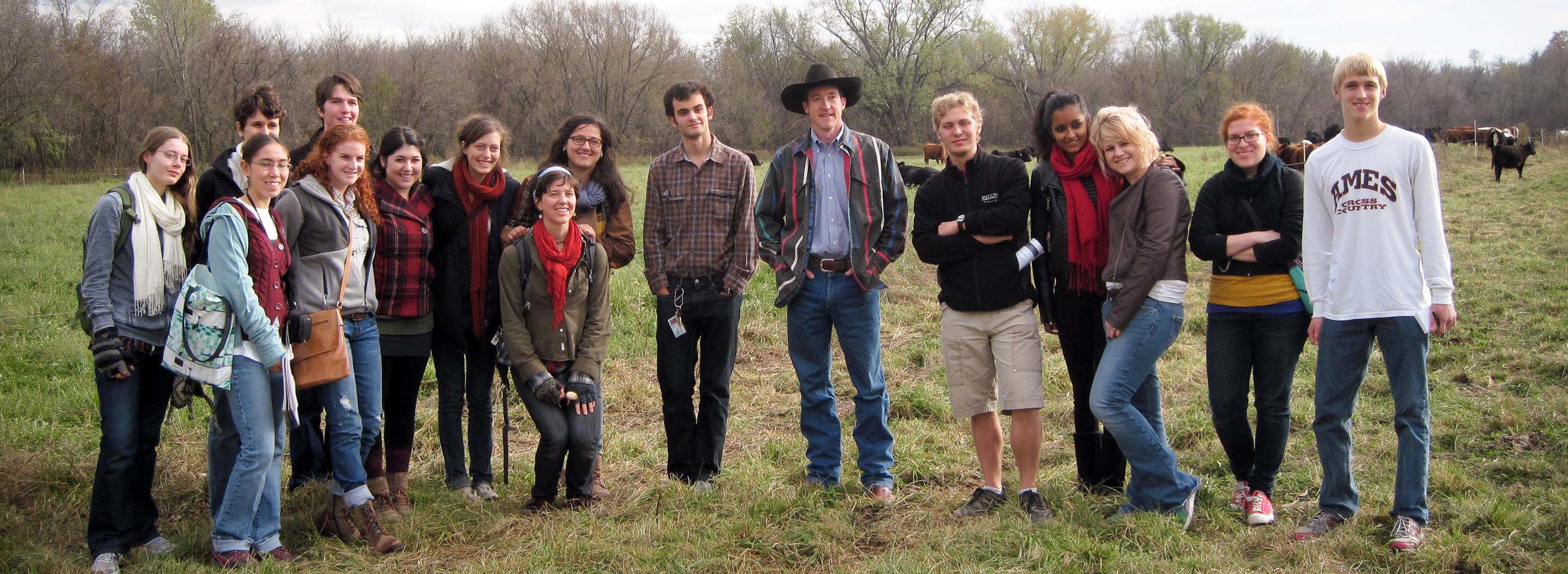
The Bon Appétit Blog
+ Blog Categories

Bon Appétit Cafés Top the List of Best Universities for Food Lovers
- Blog
From foodies to vegans and the gluten-intolerant, today’s students are increasingly scrutinizing the food at their prospective colleges — and citing its quality and choice as major factors in their decision making. But comparing dining programs can be tough, without tasting food at each school and chatting with the dining services staff. The Daily Meal sought to make the process easier by pulling together a list of the nation’s top 20 colleges and universities, ranked by their food options. Four Bon Appétit accounts made the top 10!

Studying Corporate Sustainability – From the Inside
- Blog
When you’re outside of a company looking in, it’s hard to tell if the sustainability claims it makes are genuine. A year ago, I accepted a position with Bon Appétit Management Company in operations because it was one of a small handful of companies that seemed to be making significant efforts within a constrained food system. I was interested in sustainable business throughout graduate school, and what I heard over and over (and over!) again was: get some experience in operations. If you understand how a factory works or a kitchen runs, you’ll be more valuable to any sustainability team.
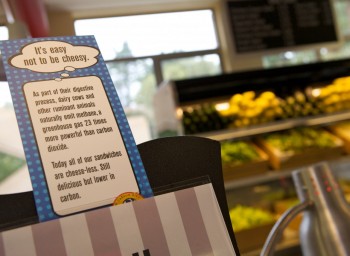
How Low Carbon Can You Go? We Can Help!
- Blog
These days, you can’t walk into a grocery store without being exposed to a new diet: flexitarian, vegetarian, vegan, paleo, cookie diet, low-fat, cabbage soup, gluten-free, elimination, low carb…the list goes on.
But there’s one important diet that most people have never considered: the low carbon diet. Shrinking our carbon “foodprint” is just as important as shrinking our waistlines. The food system — from fertilizers to livestock, transportation, and packaging — is responsible for at least one-third of global greenhouse gas emissions.
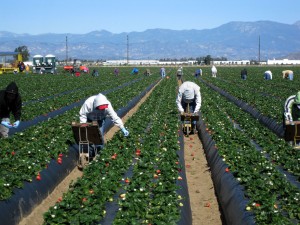
Get the Facts about Farmworkers with New, Downloadable Slideshow
Last week, two elderly farmworkers took the brave and very unusual step of suing their employer, an onion grower in the Coachella Valley, for violating the few labor laws that protect farmworkers. California is one of the few states that require farmworkers to be paid the minimum wage. Farmworkers are exempt from many federal labor laws. These gaps were detailed in the Inventory of Farmworker Issues and Protections in the United States. We’ve created a new, educational slideshow based on key facts and statistics from the Inventory for educational purposes.

Mussels in Spicy Tomato-Cilantro Broth
- Blog
This month’s Well Being Challenge encourages you to choose a healthy meal that also meets a low carbon principle for at least one meal each day this month. To get started, try the below recipe that includes a ‘super green’ seafood according to the Monterey Bay Aquarium’s Seafood Watch program. To learn more about the nutrition principles of a low carbon diet, visit cafebonappetit.com
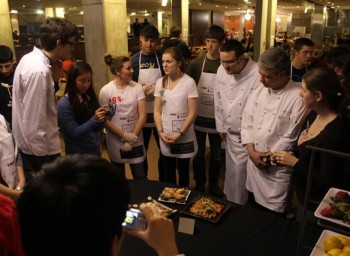
Bon Appétit Teams with Carleton’s FireBellies for ‘Top Chef Dining Hall’
- Blog
Students here sometimes complain that “there’s nothing to eat,” but that’s a result of their lack of creativity, not Bon Appétit’s. If you eat pasta Alfredo every meal, no matter how flavorful, it can get boring in the long run. Top Chef Dining Hall is designed to get people thinking outside their usual plates: in 30 minutes, five teams compete in making a three-course dinner (appetizer, entrée, and dessert) with only the ingredient and equipment available in the dining hall.

Very Zucchini Spice Bread
- Blog
This month’s Well Being Challenge encourages you to choose a healthy meal that also meets a low carbon principle for at least one meal each day this month. To get started, try the below recipe that is a more locally-available version of a recipe often prepared with bananas, that are flown in from afar. To learn more about the nutrition principles of a low carbon diet, visit cafebonappetit.com

Chefs Apply “From Scratch” Principle to Bacon, Sausage, and More
- Blog
Once a way to preserve meat without refrigeration, charcuterie – the branch of cooking devoted to preparing bacon, ham, sausage, terrines, galantines, pâtés, and confit – has become an art within the culinary world. It’s also a popular cooking technique among devotees of sustainable food, because it utilizes parts of the animal that would otherwise be discarded. Making charcuterie isn’t easy, but Bon Appétit chefs across the country are embracing the challenge!
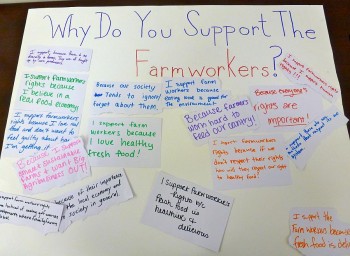
Students Share Why They Support Farmworkers
- Blog
Last week Bon Appétit Management Company cafés around the country celebrated 13th Annual National Farmworker Awareness Week (NFAW). As part of our efforts to make people think about who harvests their food, we asked students at colleges and universities to create a collage about why they support farmworker rights. Here’s how some thoughtful students from American University in Washington, DC; Goucher College in Maryland; and Emmanuel College in Boston finished this sentence: I support farmworker rights because…
